Abstract
In 1984, the Association of American Medical Colleges (AAMC) issued recommendations for the reform of medical education. One recommendation was that information sciences be incorporated into the medical curriculum. In fall 1996, a survey was conducted to learn more about computer use by medical students at the Rockford regional site of the University of Illinois at Chicago College of Medicine. The purpose of the survey was to gather information not only about computer skills, but also about overall comfort level in using computers and about expectations for enhancing computer skills while attending medical school. Over a two year period, 208 students representing four classes received this survey in their e-mail. Non-respondents received a follow-up print copy in their student mailboxes. Results, based on a 60% response rate, showed a majority of Rockford students entered medical school with good skills in using e-mail and word processing, but many lacked the skills necessary to search the medical literature or to use computer-assisted instructional programs. Overall, 80% of students expected to learn more about computers while attending medical school. Results contributed to an increased effort to integrate computer applications into the medical curriculum and to use computers as a means of communicating with students.
Full text
PDF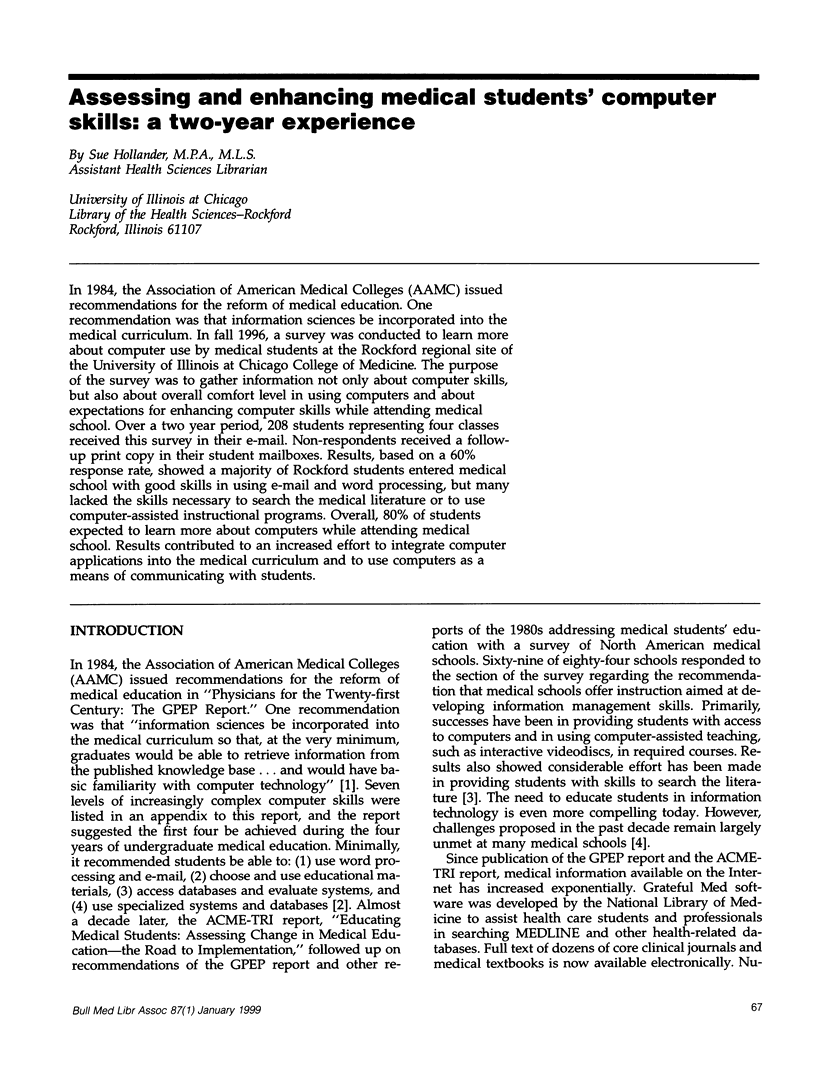
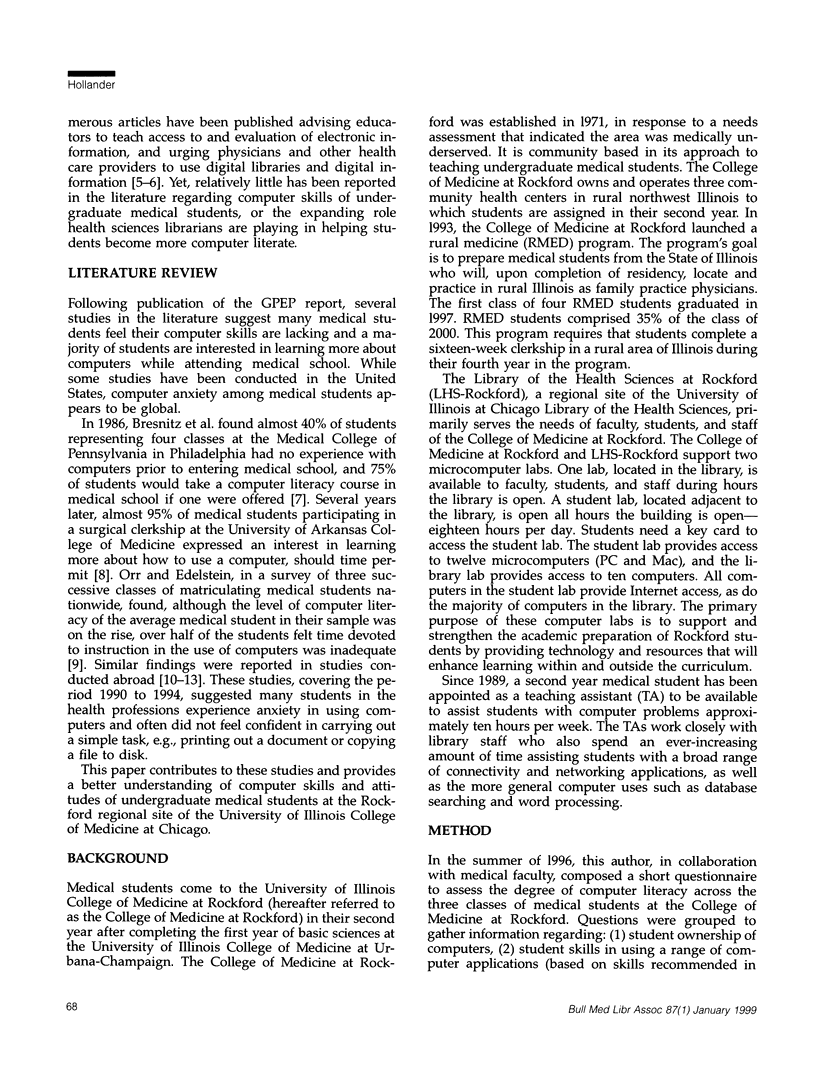
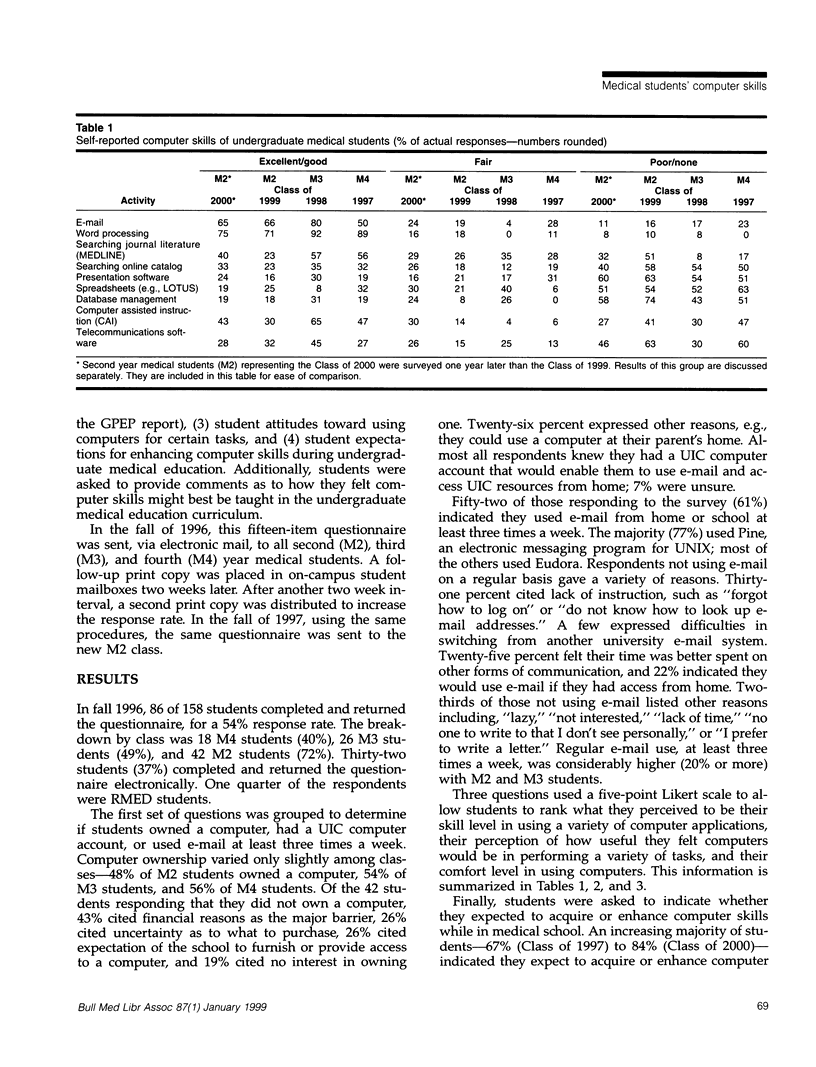
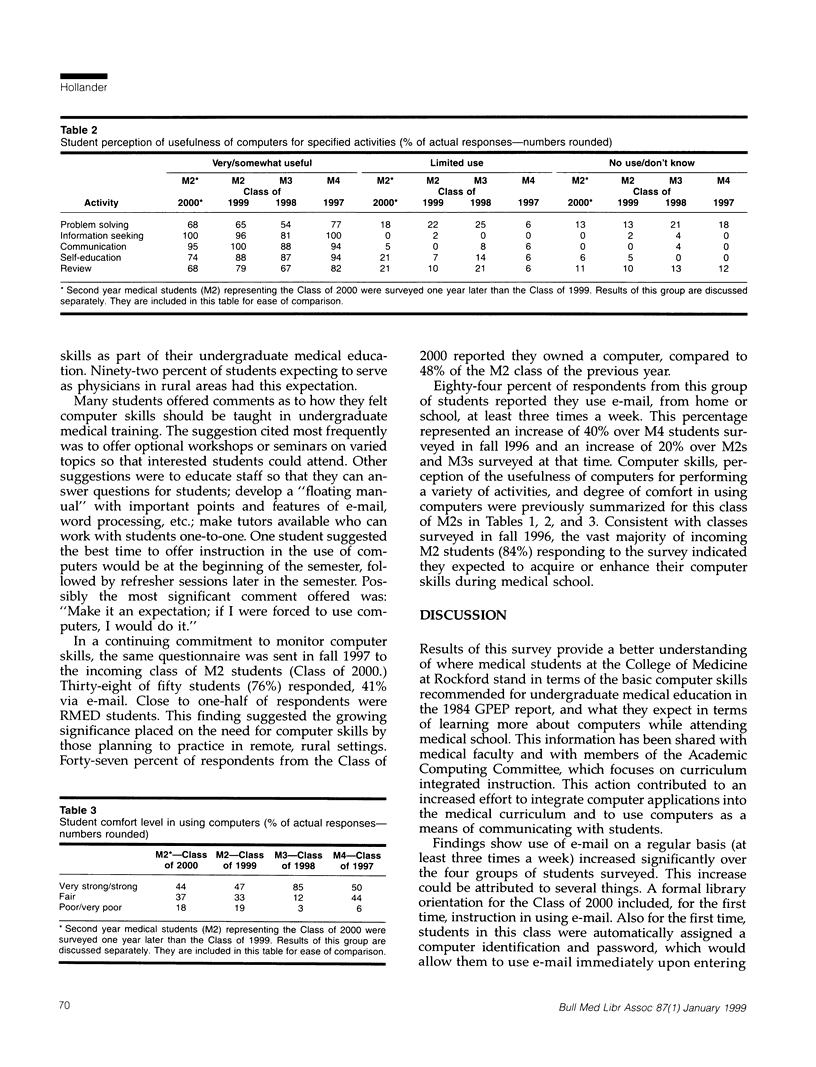
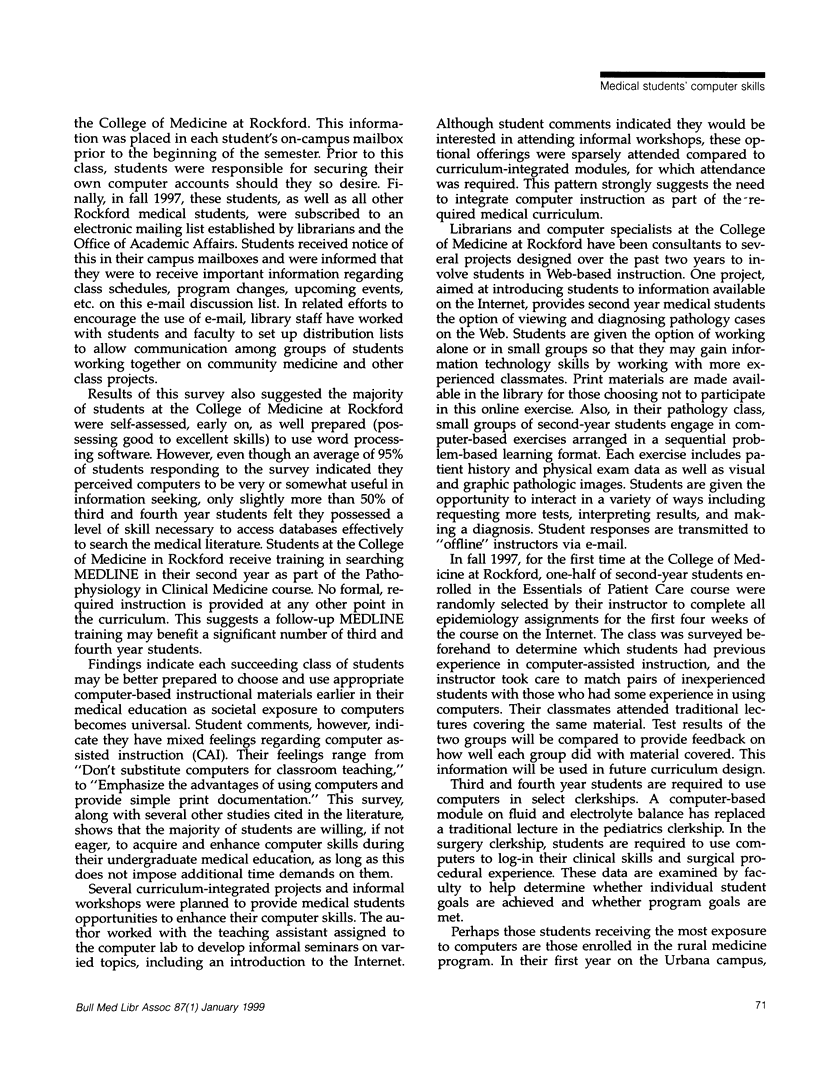
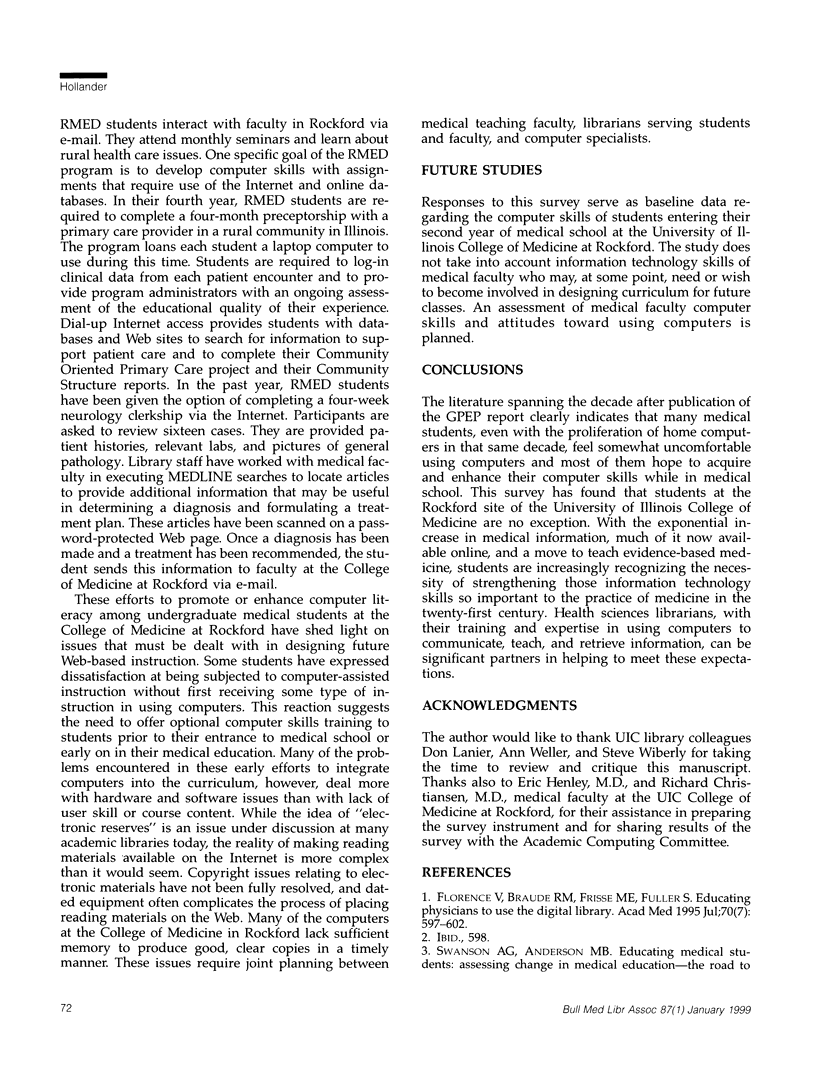
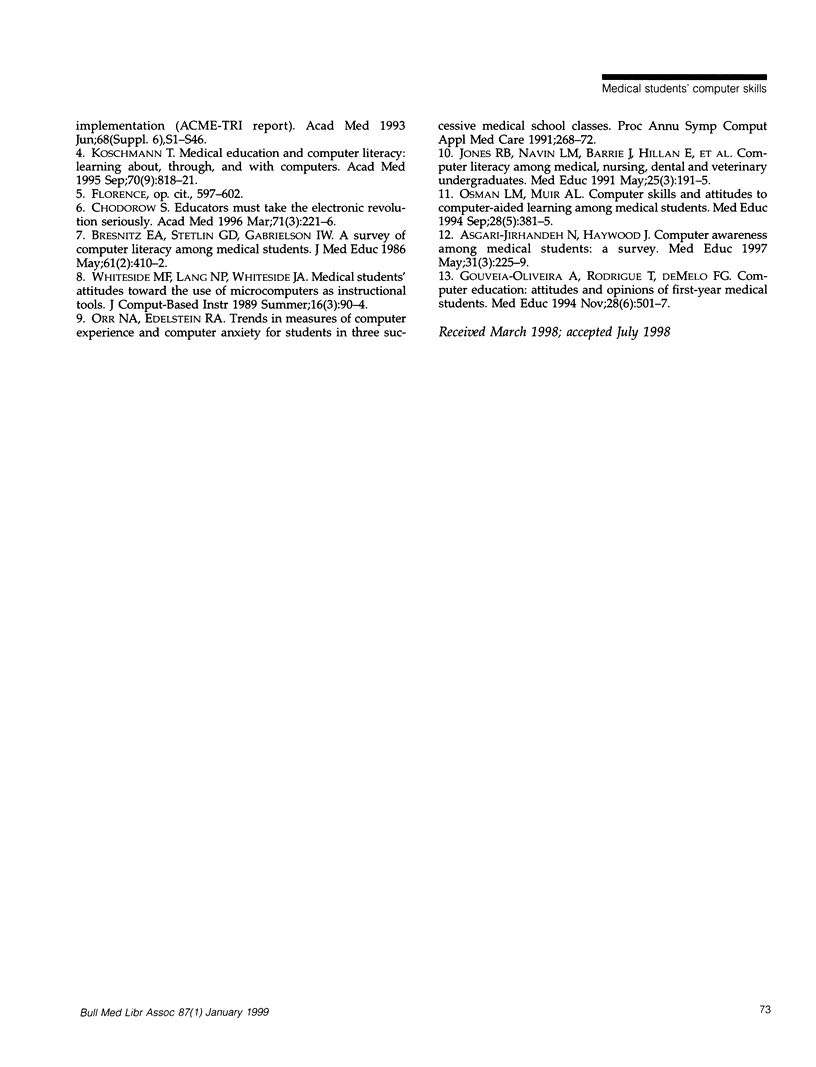
Selected References
These references are in PubMed. This may not be the complete list of references from this article.
- Asgari-Jirhandeh N., Haywood J. Computer awareness among medical students: a survey. Med Educ. 1997 May;31(3):225–229. doi: 10.1111/j.1365-2923.1997.tb02571.x. [DOI] [PubMed] [Google Scholar]
- Bresnitz E. A., Stettin G. D., Gabrielson I. W. A survey of computer literacy among medical students. J Med Educ. 1986 May;61(5):410–412. doi: 10.1097/00001888-198605000-00011. [DOI] [PubMed] [Google Scholar]
- Chodorow S. Educators must take the electronic revolution seriously. Acad Med. 1996 Mar;71(3):221–226. doi: 10.1097/00001888-199603000-00009. [DOI] [PubMed] [Google Scholar]
- Florance V., Braude R. M., Frisse M. E., Fuller S. Educating physicians to use the digital library. Acad Med. 1995 Jul;70(7):597–602. doi: 10.1097/00001888-199507000-00011. [DOI] [PubMed] [Google Scholar]
- Gouveia-Oliveira A., Rodrigues T., de Melo F. G. Computer education: attitudes and opinions of first-year medical students. Med Educ. 1994 Nov;28(6):501–507. doi: 10.1111/j.1365-2923.1994.tb02726.x. [DOI] [PubMed] [Google Scholar]
- Jones R. B., Navin L. M., Barrie J., Hillan E., Kinane D. Computer literacy among medical, nursing, dental and veterinary undergraduates. Med Educ. 1991 May;25(3):191–195. doi: 10.1111/j.1365-2923.1991.tb00051.x. [DOI] [PubMed] [Google Scholar]
- Koschmann T. Medical education and computer literacy: learning about, through, and with computers. Acad Med. 1995 Sep;70(9):818–821. [PubMed] [Google Scholar]
- Orr N. A., Edelstein R. A. Trends in measures of computer experience and computer anxiety for students in three successive medical school classes. Proc Annu Symp Comput Appl Med Care. 1991:268–272. [PMC free article] [PubMed] [Google Scholar]
- Osman L. M., Muir A. L. Computer skills and attitudes to computer-aided learning among medical students. Med Educ. 1994 Sep;28(5):381–385. doi: 10.1111/j.1365-2923.1994.tb02548.x. [DOI] [PubMed] [Google Scholar]


